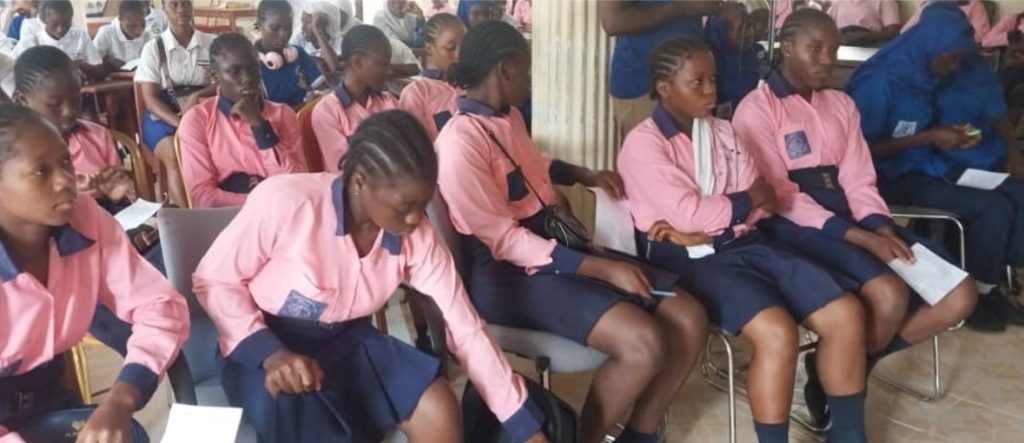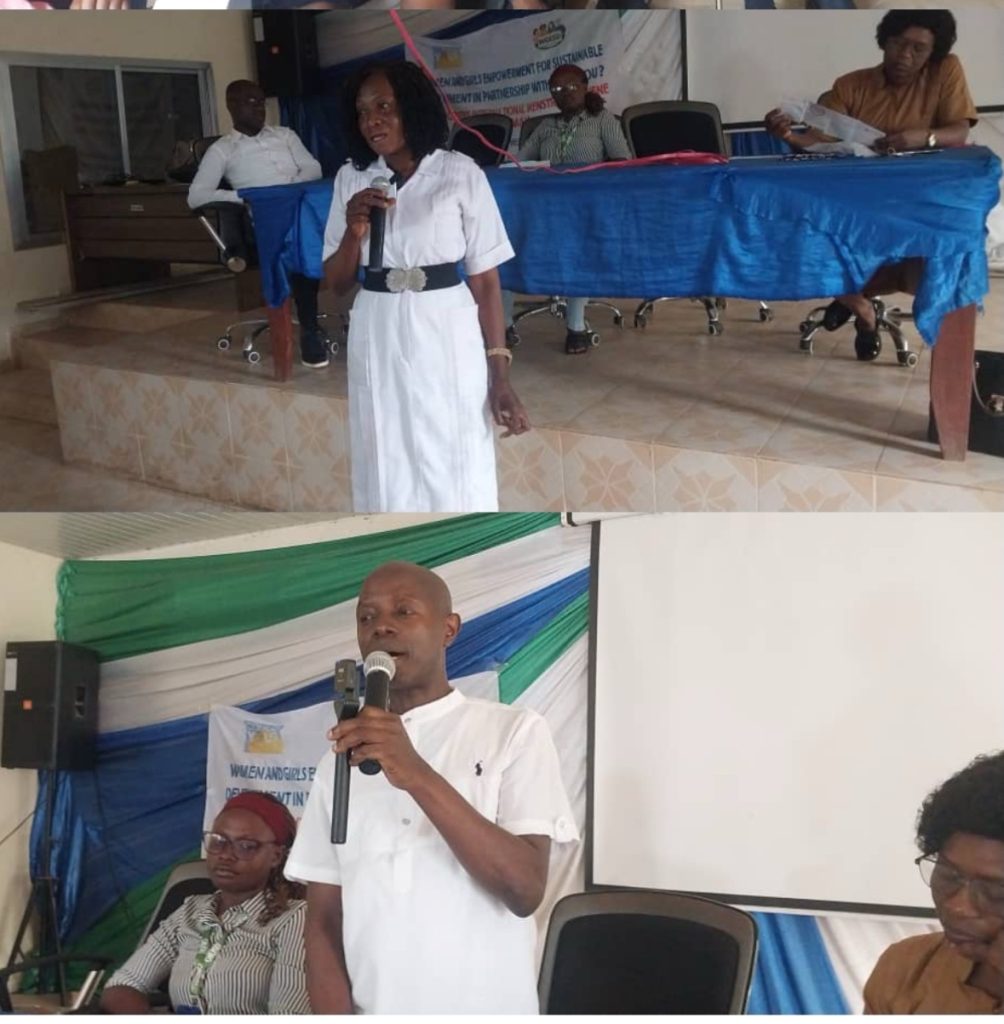Abass Sesay, AYV News, May 30, 2025
To mark the World Menstrual Hygiene Day on May 28, 2025, the Women and Girls Empowerment for Sustainable Development (WGESED) in partnership with ‘Could You?’ held a powerful community-driven event at the Kabala Community Centre in Kabala town.



The event brought together parents, teachers, community leaders, and adolescent girls in a one-day themed conference focused on: Breaking menstrual taboos, promoting best practices in menstrual hygiene management and delivering impactful health education.
Executive Director of Women and Girls Empowerment for Sustainable Development, Mahmoud Marah, emphasised on the importance of the day in promoting dignity, health, and empowerment for girls.
He said menstrual hygiene is not just a health issue—it is a human rights and development issue, adding that when girls are informed, supported, and provided with safe menstrual products, they are empowered to stay in school, thrive, and lead.
Dr. Marah said as part of Women and Girls Empowerment for Sustainable Development’s effort to reach underserved communities, the initiative distributed over one hundred and fifty medical-grade silicone menstrual cups and other hygienic products to girls and women who need them most.
He said Women and Girls Empowerment for Sustainable Development hoped that this is a worthy opportunity to inspire broader conversations across Sierra Leone, especially through the lens of health, dignity, and gender equality.
Adding a medical perspective, Dr. Steven Fornie, KoinaduguDistrict Medical Officer, spoke on the critical role menstrual hygiene plays in the overall well-being and development of girls.
According to him, good menstrual hygiene practices reduce the risk of infections and improve self-esteem, adding that it is crucial to dismantle myths and foster an environment where every girl feels confident and supported.
The event featured interactive sessions, testimonies from adolescent girls, and the distribution of sanitary pads to hundreds of schoolgirls—a gesture aimed at addressing period poverty and encouraging school attendance during menstruation.
Participants expressed gratitude for the initiative, noting that it helped create a safe space to openly discuss menstruation and break long-held stigmas.
The event concluded with a strong call to action for communities, schools, and policymakers to support menstrual health initiatives as a pathway to gender equality and sustainable development in Sierra Leone.
The commemoration served as a strong reminder that empowering girls through menstrual health education and resources is a key step towards achieving gender equality and sustainable development in Sierra Leone.
Women’s and girls’ empowerment is crucial for achieving sustainable development. By empowering women and girls, societies can unlock economic growth, social progress, and environmental sustainability. Empowering women means giving them equal access to resources, opportunities, and the ability to make decisions that affect their lives and the lives of their communities.
Empowered women contribute more to the economy through education, employment, and entrepreneurship. They can become more active participants in the workforce and drive economic growth.
Women’s empowerment leads to improved health outcomes for families, better education for children, and reduced gender-based violence.
Women are often the primary managers of resources like water and land, so empowering them ensures that these resources are used sustainably. Many of the Sustainable Development Goals (SDGs) depend on women’s empowerment. For example, SDG 5, which focuses on gender equality and empowering all women and girls, is a key driver for achieving other goals.
Empowered women challenge harmful stereotypes and norms, creating a more equitable society where all individuals can thrive.
Women’s equal participation in leadership roles at all levels is essential for creating policies that reflect the needs of the community.
In essence, women’s empowerment is not just a matter of social justice, but a powerful tool for achieving sustainable and inclusive development for all.

